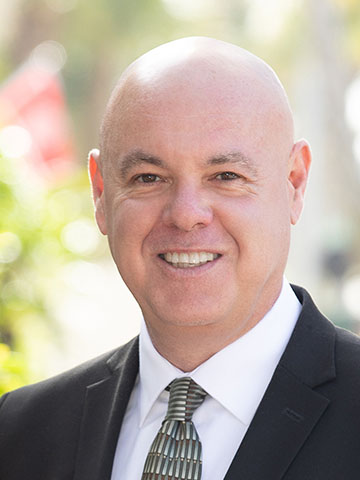If you work in the field of business brokerage you most likely have heard of the “E-2 Investment Visa”. However, this program is little understood and there are many misconceptions. In the following article I attempt to clarify what this program is and how we as business brokers are uniquely qualified to offer assistance.

Prepare for Your Exit When You Launch Your Business

You’ll often hear business brokers and M&A advisors say that the right time to prepare for your exit is when you first launch. By that they mean that it’s important to always be thinking about how to optimize your business so that it is streamlined for an eventual sale. Some of the savviest entrepreneurs and business owners are also thinking about partnering with those who will ultimately want to buy their businesses, even if the prospective sale of their business is many years away. It is easy to see why so many top-level entrepreneurs feel this way, as it is prudent to plan for the outcome you want from the very beginning.
It Pays to Think Ahead
The simple fact is that in most endeavors in life, it pays to think ahead. Selling a business is no exception. The rate of businesses that are being acquired is rising significantly. In a recent study at the University of Maryland, researchers found that in the last three decades the rate of venture capital-backed startups that have been acquired has soared from 10% to 90%.[1]
Anyone building a business should build that company in such a way that it will be appealing for acquisition down the line. Thinking about who the ideal buyer might be will help you to properly shape your business operations.
Many owners have an eye on businesses that work to serve similar markets. You may also want to think about how your product and your business model work to address an overlooked need within the existing customer base of that larger entity. If you can clearly show that acquiring your company will instantly lead to new business, then much of the battle is already won. By finding customers that a business is overlooking, you have positioned your business to be an attractive target for acquisition.
Have a Success Oriented Strategy from Day One
In short, company founders must understand their customer, their product, and why a customer will want and need what they offer. Being able to attract the right talent is also important. If a successful staff is firmly in place, your business will be far more attractive to potential buyers.
Understanding from day one the path of your startup and where you want to go will make all the difference in your success. It is important to remember that it is much easier to build an acquisition friendly company from day one than it is to retrofit your existing company years down the road.
1. The Great Startup Sellout and the Rise of Oligopoly
Copyright: Business Brokerage Press, Inc.
The post Prepare for Your Exit When You Launch Your Business appeared first on Deal Studio – Automate, accelerate and elevate your deal making.

Understanding the E-2 Visa Program
The E-2 visa is an investment based nonimmigrant visa, which allows citizens of certain Countries to live and work in the USA by investing in an existing U.S. business. By buying a US based business the E-2 applicant gains the right to live and work in the United States for a limited period of time. Usually, two years with the possibility of subsequent 2-year extensions. There is no limit to the potential number of extensions. The spouse and unmarried children (under 21) of the applicant may also join them in the US. Once here the spouse can apply for permission to work.
There is a second type of investment visa known as the EB-5. This differs in two important respects from the E-2. First of all, the amount of required investment for an EB-5 is significantly higher. Secondly the EB-5 is an immigrant program offering permanent residency to the investor. In this article I will focus on the E-2 program as this is the one you will most likely encounter.
The E-2 program requires a “substantial investment”, but no specific amount is set by law, so this is somewhat open to interpretation.
It is important to understand the type of business that will qualify for an E-2 investment. I look for small businesses with W2 employees. A business that can provide an income to support the investor and his/her family. The applicant will need to provide the immigration service with a business plan. They will want to establish a Company, typically LLC and obtain a Federal Tax number – EIN. Next a bank account should be opened in the United States. This can be a difficult step and the investor will likely need to be present to do this. Lastly the funds for the investment should be deposited in the Bank. These funds will need to be “sourced” to show their origin.
At this time the applicant will complete their due diligence on the business and accomplish the other normal steps of an acquisition. The attorney now submits the application to the Immigration Service. In the penultimate step the applicant will be called for an interview at the Embassy in their Country of origin. If everything goes well at the interview the Visa will be approved.
When working with an E-2 applicant my advice is that they retain a US based Immigration Attorney. This is a complex process, and the applicant will require assistance from an experienced Lawyer. I will not work with an E-2 applicant until they have engaged the attorney and put us in contact as we must work together.
The role of the business broker is critical in this process. We located a suitable business and made the necessary introductions. As with any deal we guide buyers and sellers through the process. The process from beginning to end will typically take six months or more. So, patience on the part of all parties is required. However, once an E-2 investor is committed I have never seen them back out of a deal due to cold feet.
The commitment of the buyer and the special circumstances involved make this a very rewarding deal for the Broker to bring to a successful close.
Yi Lee is an immigration lawyer with the law firm of David Vedder in Daytona Beach. In preparation for this article, I asked him several questions. I found his answers so informative that I have included the discussion below.
We typically suggest for minimum investment to be around $150,000 but I have had one approved for $90k. We like the range of $150k to $250k.
To qualify, the investor has to be a citizen of the treaty country that shares trade and commerce with the US. Not all countries can avail of the E-2 treaty visa. For example, India and China are not E-2 countries. For the UK, it is not enough to show that the investor is a citizen of the United Kingdom, but the investor must also show domicile in UK proper.
Any bona fide lawful business can be invested for the E-2 benefit. The investment must be substantial, which is determined on a case-by-case basis. Return on investment must be more than marginal. A marginal enterprise is one that does not have the present or future capacity to generate more than enough income to provide a minimal living for the treaty investor.
While creation of jobs, i.e., hiring of employees, is not necessary to obtain the E-2 benefit, it certainly helps to show that the investor is creating US jobs.
The biggest challenge when applying for the E-2 visas at Post is that every consulate has slightly different requirements. Overall, however, I have experienced that E-2 Officers are generally very reasonable and want to approve these visas to drive foreign investment into the US.
One piece of advice I would give to an applicant for an E-2 visa is to document everything! Have an accountant document the source of funds and show that it is a legitimate source. Create the LLC and capitalize the business account, if possible, before submitting the application. An organized application is a readily approvable application!
The typical timeline from application to approval is around 3 to 4 months. The fastest turnaround time I have seen was 2 months.
Anthony John Rigney is the owner and Broker with Quorum Business Advisors, LLC. He entered the business brokerage industry in 2008 and has been a member of the BBF since that time. For several years he served as President of the North Florida District.

Anthony Rigney
Owner and Broker
Quorum Business Advisors, LLC

Shaping the Future of the BBF
Orchestrating the progress of the BBF as usual, the Board of Directors met on the 22nd of September 2023, in the first in-person session since 2019. It was the first of many future third-quarter face-to-face board meetings. The meeting format was scheduled where the board of directors met in the morning half of the session. Then, the afternoon session was open to all members. It was a pretty good turnout for the open session, with many of the BBF’s top business brokers in attendance, asking questions and providing welcomed suggestions.
We had a full slate of items that needed to be discussed. Some of these items spun off into committees and task forces requiring further in-depth review and discussions to bring back to the board. Beyond the usual financial and Executive Director reports, we had a few items of note. Still, the one that stands out the most is the approval of the agreement and the funding for next year‘s BBF conference at the Caribe Royale in Orlando on August 24 and 25. Many exciting things are happening in the BBF that will soon be announced, so I encourage you to watch for communications through our newsletters and emails.
One item brought up for discussion and unanimously approved by the board was to re-classify/re-name our organization and the wording and acronym that we use to describe our association’s functions from an MLS to the BLS. For many years, we have been utilizing the URL BBFMLS.com. However, MLS or “multiple listing service” is something that typically represents residential or commercial real estate. The BBF, owning the BBFBLS.com, makes it official that we are a Business Listing Service. We start BBF down the path once again as a leader in the industry with the first official BLS in the world.
During the open session of this meeting, we took nominations from across the state district by district. As it was ratified a few years ago in our bylaws, the election process for the BBF Board of Directors and District Advisory Committees now would be conducted by a nomination by individuals across the state for each district. When we implemented this change, we voted as a board to allow any BBF member to sit on the Board of Directors, not just a broker of record. This change allows many more individuals to step up and get on the ballot this year. I’m excited to see this year‘s nominations go out for a vote. You’re going to see a lot of great brokers. Step up into leadership positions to help shape the future of the BBF. So, watch for the election ballot for your state board of directors and district advisory committees over the next few weeks.
What I truly love about being a part of leadership in the BBF is working with such great minds and experienced Brokers. I have built a strong relationship with each individual on the board for the past several years, and it’s good to know that we don’t always see eye to eye. It’s good that we challenge each other and our traditional thoughts so we can introduce fresh ideas. Even though we get along in many different ways, aligning our morals, ethics, and business attitude is critical. We continue to share insight with each other of our personal experiences and ideas to safeguard the future of the BBF and to put it in a stronger position for future leadership to maintain.
I couldn’t be prouder to be a part of laying out the plans for a better, much stronger BBF. I hope that at least one or two of you who read this decide you want to be a part of what makes our association the best. An individual can help out in many ways, even if it’s sitting in on a committee or a task force or dedicating a little bit more time and getting involved in leadership. I hope it encourages several of you to step up and be a part of the leadership and help shape the future of the BBF.

Joe Shemansky CBI, M&AMI, CM&AP
Chairman
Business Brokers of Florida

The Power of Specializing in a Niche
For years, I’d heard the saying: “The riches are in the niches.” Although I believed it, fear prevented me from truly adopting it in my business brokerage practice. I kept asking myself:
- Could I turn away listings outside my niche?
- How much revenue might I lose?
- What if specializing failed?
Though I often considered specializing, I’d revert to listing any business that came my way. However, I met brokers who thrived by focusing on a particular niche. Six years ago, I chose to specialize, and it became the best decision for me.
Why I Chose My Niche: I focused on heating and air businesses. My decision was based on my personal experience owning such a company and understanding its intricacies. I also relocated to a region with low sales volume in this sector. After thorough research, I realized there was potential. A niche doesn’t only mean focusing on an industry like HVAC; it could also be location-based, gender-based, or even based on specific buyer groups. The crucial aspect is to be perceived as the ‘go-to’ or ‘best’ in that niche.
Benefits of Specializing:
- Value Addition: Specializing ensures I deeply understand my clients’ businesses, which wasn’t the case when I was a generalist.
- Focused Marketing: My marketing budget targets a single industry, which increases its efficiency and visibility.
- Targeted Buyers: My potential buyer list has grown specific and valuable since switching.
- Industry Visibility: I participate in all industry events, making sure potential clients recognize me.
- Expertise: My specialization has positioned me as the industry expert, a strong selling point against competitors.
- Deep Knowledge: I focus solely on the nuances of the heating and air business, ensuring I’m always informed.
- Strong Online Presence: I’ve made sure that anyone looking for a specialist in my niche finds me first on all platforms.
- Building a Brand: Embracing a niche allows me to craft a clear and compelling brand narrative.
While I’m obviously biased, I genuinely believe in the value of specializing. If you’re contemplating narrowing your focus, I hope my journey inspires you. I’m here to assist, so don’t hesitate to get in touch.
Patrick Lange is with Business Modification Group based out of Horseshoe Beach, Florida. He specializes in the sale of heating and air companies nationwide. Patrick is the current North Florida Chapter President.

Patrick Lange
Business Modification Group

The Different Buyers You Might Encounter

If you’re selling a business for the first time, you might have a preconceived notion of the type of buyer that’s most likely to purchase your business. However, the truth is that sellers often get competitive and attractive offers from buyers that they were not expecting to have an interest in their business. Let’s take a look at some of the variety of buyers you might encounter on the path to selling your business.
Your Family Members
One common buyer would be a member or members of your family. One of the advantages to selling to family members is they already may have a deep understanding of what it means to own and operate your business. As a result, they may feel more prepared.
On the other hand, just because someone is your family member does not mean they have the chops to actually run your business. Further, if you sell to a family member, you may end up dealing with someone who has less cash available to buy.
Competitors and Synergistic Buyers
You may not have warm fuzzy feelings towards your competitors, but the truth is that you need to be open to the idea of receiving offers from them. In fact, many competitors immediately look to their competition first when they decide they are going to expand their business. Your competitors make a lot of sense as good candidates because they understand your industry. Purchasing your business represents a viable way to rapidly expand their own offering with products and/or geographical reach.
Along similar lines, synergistic buyers acquire new companies in order to leverage their existing operations. You will find these buyers are typically larger entities in the same or related industries. In buying your business, their goal is to support and quickly add value to their current organization.
Individual Owner Operators
Many sellers end up with a deal on the table from an individual buyer. There are definite advantages associated with this type of buyer including the fact that it can streamline the sales process when you are dealing with one person rather than a group. Individual buyers oftentimes have corporate experience that helps them to effectively take over and manage a business. Another advantage to the individual buyer is that he or she oftentimes has a personal interest in the business and plans to successfully operate and improve it.
Financial Buyers
A financial buyer is most interested in their ROI. They will zero in on finding out about the cash flow and long-term exit strategies. These investors are typically only interested in very solid companies that are generating solid revenue. They will be less likely to want to take the time to make changes and improvements, so they will expect healthy returns on their investment on day one.
Your business broker or M&A advisor will help you understand the pros and cons of various buyers when it comes to your unique situation. Ultimately, you’ll find the type of buyer that is best suited to buy your business and that fulfills your needs and goals simultaneously.
Copyright: Business Brokerage Press, Inc.
The post The Different Buyers You Might Encounter appeared first on Deal Studio – Automate, accelerate and elevate your deal making.
